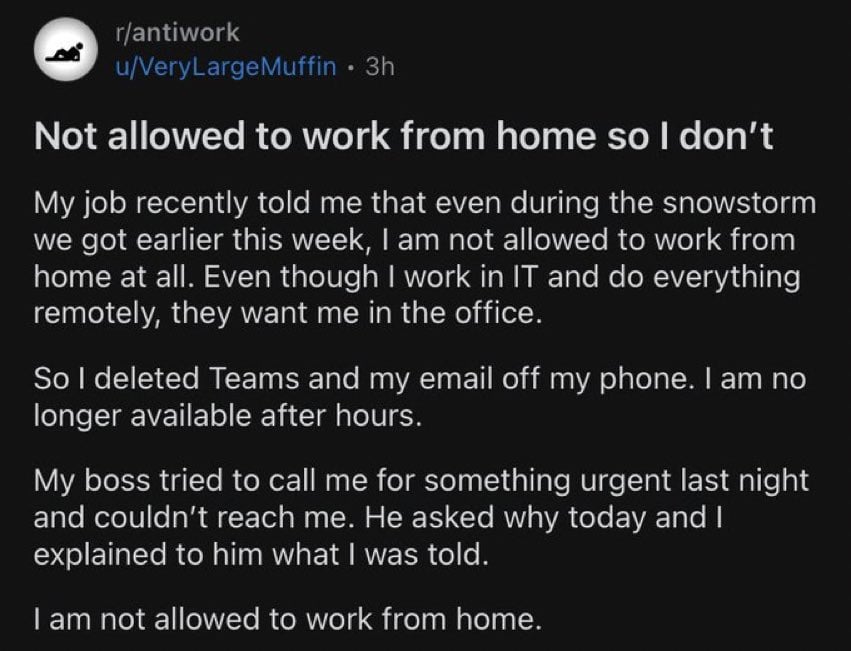Malicious Compliance
People conforming to the letter, but not the spirit, of a request. For now, this includes text posts, images, videos and links. Please ensure that the “malicious compliance” aspect is apparent - if you’re making a text post, be sure to explain this part; if it’s an image/video/link, use the “Body” field to elaborate.
======
-
We ENCOURAGE posts about events that happened to you, or someone you know.
-
We ACCEPT (for now) reposts of good malicious compliance stories (from other platforms) which did not happen to you or someone you knew. Please use a [REPOST] tag in such situations.
-
We DO NOT ALLOW fiction, or posts that break site-wide rules.
======
Also check out the following communities:
!fakehistoryporn@lemmy.world !unethicallifeprotips@lemmy.world
view the rest of the comments

My guess is that some businesses get tax breaks from municipalities in exchange for filling office spaces with warm bodies. The idea is that people in office buildings support local businesses by buying lunch, and sometimes grabbing a pint after work.
I’m not trying to excuse this trend, in fact as an IT person myself I 100% agree with the sentiment, I’m just trying to share what I’ve been told.
Commercial realestste makes up a significant amount of rich people's investment portfolios. And if people stopped needing office space the property would devalue and those rich people would lose easy money.
So they have all collectively agreed to force their workers back to the office I order to keep the real estate values up and keep their investments positive.
Also rich can afford to have a investment in busy city areas while regular folk can get a house in urban areas at best. And work from home is leading people to the urban areas where rents are less.
It's even simpler than that: they leased the office space and have to continue to pay that lease or else pay an early termination fee. This is basically the sunk cost fallacy. But you are right that sometimes additionally they get tax breaks for certain office space, for instance the San Francisco mid-market tax break (AKA the Twitter tax break)